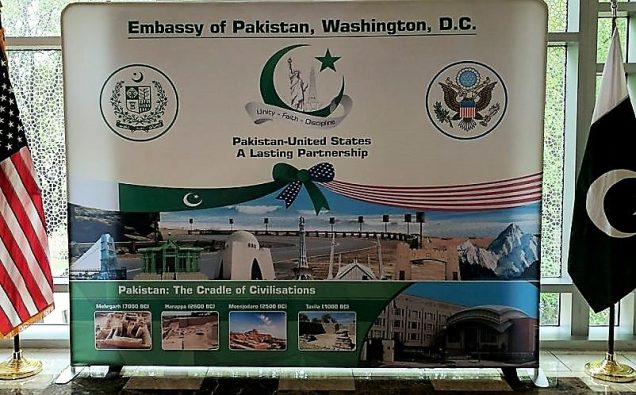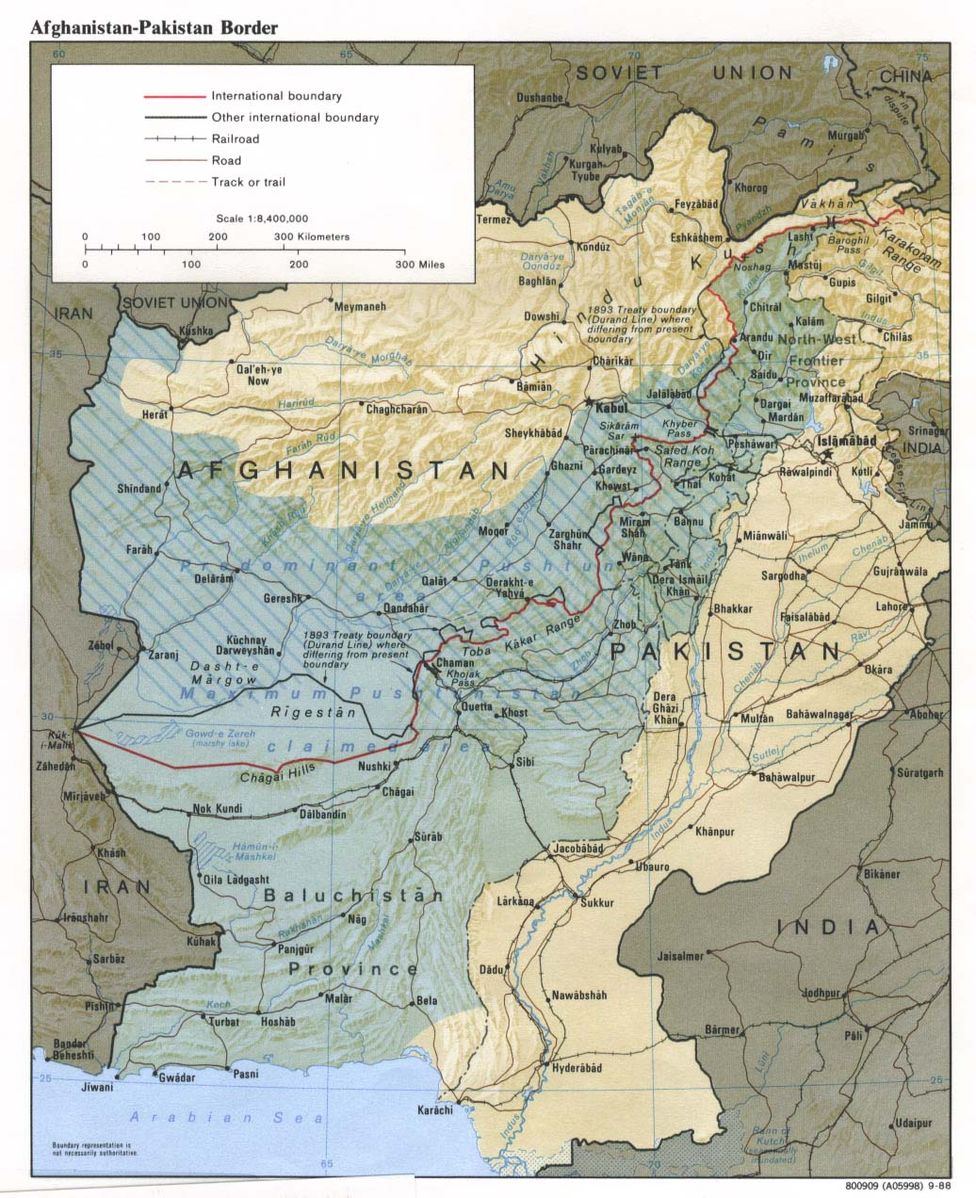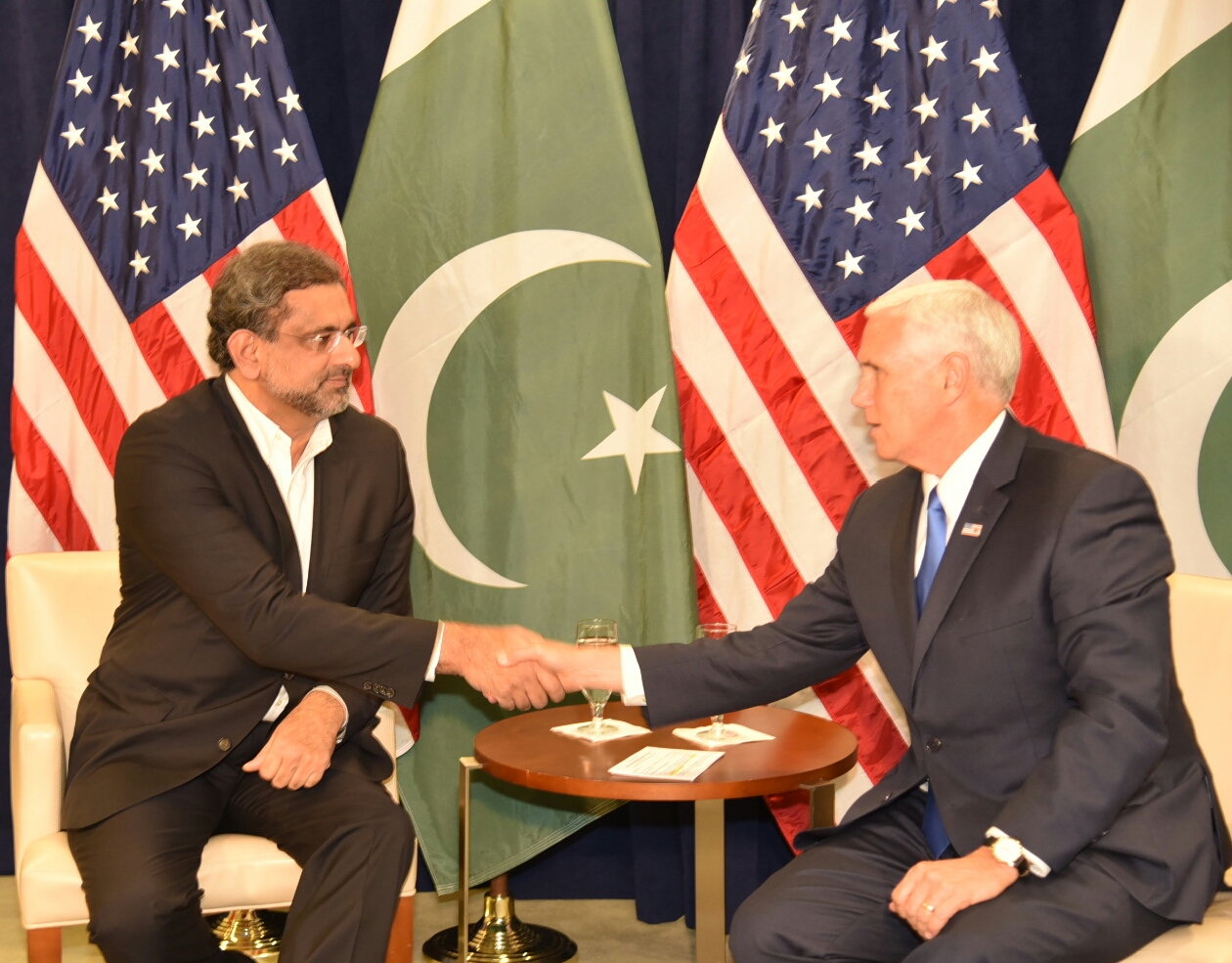
The downslide in U.S.-Pakistan relations that began with President Donald Trump’s Twitter tirade against Islamabad, seems to have stopped, or at least halted.
Washington and Islamabad have taken the route of constructive diplomacy with exchange visits by senior diplomats including Foreign Secretary Tehmina Janjua’s talks in Washington D.C. this week and a senior U.S. national security adviser Lisa Curtis’ earlier visit to Islamabad.
The series of parleys elevated to leadership level, when Pakistan’s prime minister Shahid Khaqan Abbasi, on a private visit to the United States, had an unscheduled meeting with Vice President Mike Pence.
A White House statement issued after the meeting said Pence reiterated President Trump’s request that Pakistan make more efforts to cooperate with the United States toward Afghan peace and stability.
Though the statement was a repeat of the Trump Administration’s call for Pakistan to do more, the tone of the statement suggesting a ratcheting down of the rhetoric that characterized the U.S. criticism of Pakistan in January.
Concurrently, the two post-/911 counteterror allies with a history of seesaw ups and downs in ties, have take some important steps to build mutual trust.
Pakistan has been helping with a move to push Afghan Taliban to peace negotiations with Kabul through whatever influence it has with the groups.
The U.S., on the other hand, has responded to Islamabad’s longtime security concern about the Pakistani Taliban (TTP) using safe havens on the Afghan soil for terror inside Pakistan.
Over the past few weeks, the U.S. has announced a bounty for information leading to TTP leaders, hiding in Afghanistan, and also carried out a drone strike against the Tehreek-i-Taliban hideout in Afghanistan’s Kunar province.
The result has been Afghan President Ashraf Ghani’s unconditional offer of dialogue to the Afghan Taliban.
On Sunday, Pakistan’s National Security Advisor Nasser Janjua met with Ghani and Abdullah Abdullah in Kabul to discuss the peace process, describing the Afghan offer of peace to the militant group as light at the end of the tunnel after years of bloodshed and destruction from terrorist bombings and government campaigns.
Ghani has also invited Pakistan’s prime minister to Kabul to overcome frictions in the ties and work toward peace.
Yet, both Washington and Pakistan have a sensitive phase of restoring the relationship to a friendly cooperative level. The Trump Administration has frozen security aid for Pakistan, and has also lobbied to put it back in a category of countries that are not doing enough to choke terrorist financing.
On the U.S. side, it wants strong assurances of sustained Pakistani cooperation for Afghan peace and stability and also move strongly against militants operating on the Pakistani soil.
Given the past efforts toward Afghan reconciliation failed to take off due to a variety of reasons, the latest push needs a marked improvement in trust in the two key relations – the U.S.-Pakistan and Pakistan-Afghanistan.
Adding another layer of complexity to the U.S.-Pakistan relations is the tense Pakistan-India equation, with both South Asian nuclear-armed rivals resorting to heavy shelling across the Line of Control in the disputed Kashmir region.
Islamabad, which has partnered with the United States in the fight against al-Qaeda since American invasion of Afghanistan in October 2001, has also several issues it wants the U.S. help on like stopping New Delhi from stirring up insurgency in Balochistan.
As stated by Foreign Secretary Tehmina during her visit to Washington D.C., Islamabad would also like to see resumption of strategic dialogue to expand the bilateral cooperation in economic, security and development fields.
So, while early signs of a thaw in the works in the U.S.-Pakistan relations, the two countries need to proceed with skillful diplomacy that may help restore the relationship and with it bring elusive peace to Afghanistan.
While the U.S. and the Trump Administration have obvious high stakes in an outcome that may promise Afghan stability, Pakistan will have to leverage its influence productively in the next few weeks and months to remove any suspicious, retrieve the vitally important relationship and ensure peace on its western border at a time when economic scenario promising with the completion of China-Pakistan Economic Corridor.



















